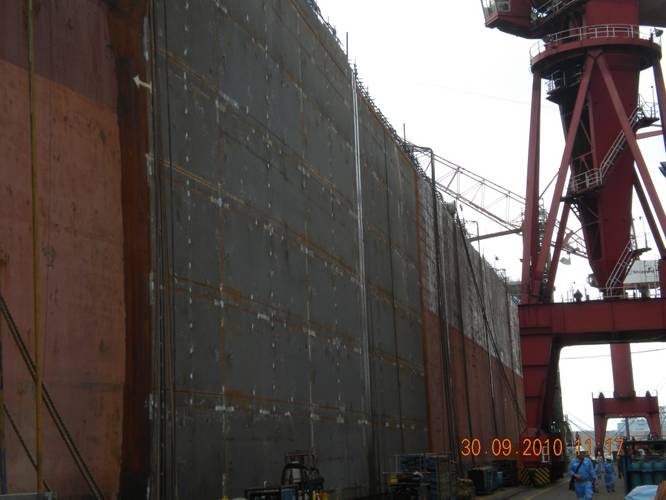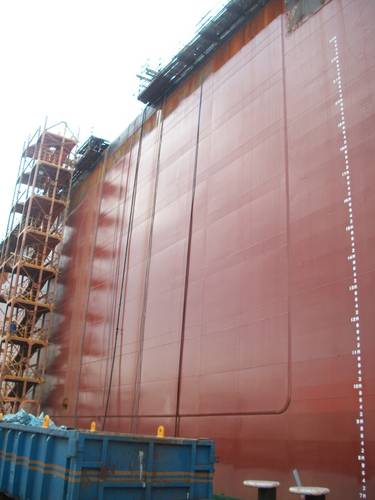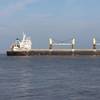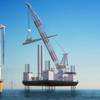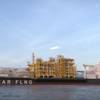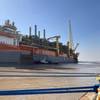SPS Overlay has yet again been used for side impact protection on three FPSOs for a major player in the offshore industry. The work was carried out at Enseada do Paraguaçu S.A. Shipyards (EEP) in Brazil and COSCO (Dalian) Shipyard, China. These projects were undertaken during the course of 2014, with the final project being completed in December 2014. A total 2,824m² of SPS Overlay has been installed on the three vessels.
Intelligent Engineering (IE) sought approval from the three vessels’ Class Society, DNV, to install SPS Overlay on boat landing areas adjacent to the cargo oil tanks of the vessels. This work was required to meet the low energy impact resistance requirements of IMO MARPOL Annex I Requirements for FPSOs and FSUs. The use of SPS Overlay creates a compact double side shell which exceeds these regulatory requirements.
2007 saw IE undertake a technical study, commissioned by Single Buoy Moorings (SBM), to confirm the feasibility of installing an SPS Overlay fender system to protect the side shell structure on a FPSO vessel in way of the boat landing area. The conclusion was that the use of SPS Overlay exceeds the requirements for the design collision scenario of a 5,000-metric-ton displacement Offshore Supply Vessel (OSV) colliding with an FPSO.
Since then SPS Overlay has been used on 12 FPSOs to provide safe, efficient and cost effective side shell impact protection. Its use eliminates the need to install cofferdams or a double hull. Void spaces which would have required through-life inspection and maintenance can now be used to store more cargo.





